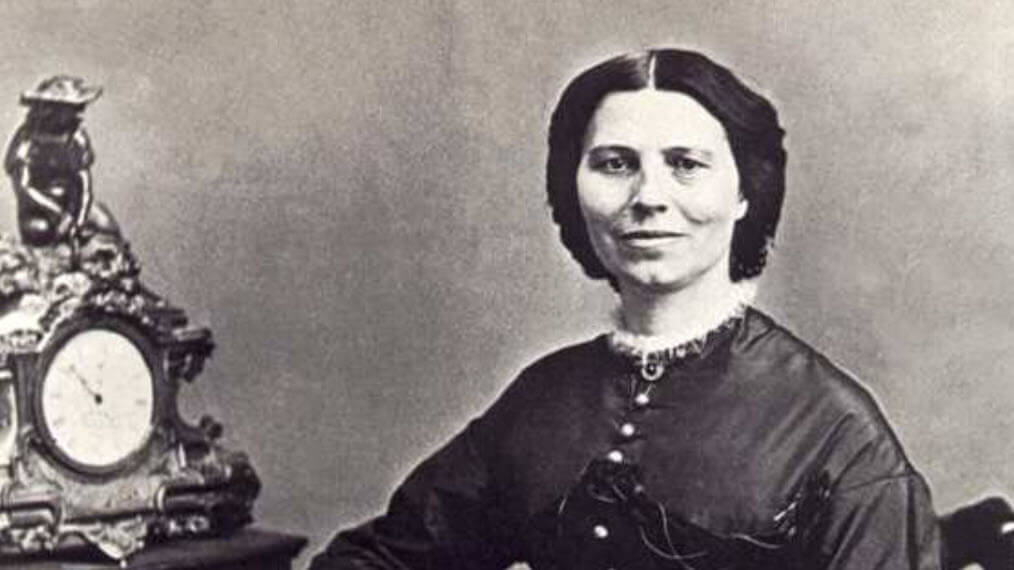Who was Clara Barton? Information on American humanitarian Clara Barton biography, life story and works.

Source: wikipedia.org
Clara Barton; (1821-1912), American humanitarian, who organized the American Red Cross. She was successively a school teacher, clerk, battlefield heroine, lecturer, and relief organizer.
Clarissa Harlowe Barton was born in North Oxford, Mass., on Dec. 25, 1821. Forced to give up her teaching career because of a throat ailment, she worked in the Patent Office in Washington, D.C., from 1854 to 1861. Distressed at the lack of supplies and “comforts” for the wounded in the Civil War, she began, without official organization or affiliation, to minister to casualties on battle sites in Virginia. Soon known as the “Angel of the Battlefield,” she divided her time between caring for the wounded and cooking pies and puddings for them. Eventually she was accredited as superintendent of nurses with the Army of the James.
In 1865, at Miss Barton’s urging, President Lincoln authorized her to gather records on missing Union soldiers. Thousands of the dead were thus identified, particularly many victims of the notorious Andersonville Prison in Georgia. While combining this work with lecturing, Miss Barton became nationally famous, but in 1869 her health broke and she went to Europe to recuperate.
In Geneva, Miss Barton first heard of the International Red Cross, established in 1864 at the instigation of Jean Henri Dunant. Enrolling as. a volunteer to help civilian victims of the Franco-Prussian War, she visited Paris and other cities, remaining abroad until 1873.
After resettling in Washington as a lecturer, Miss Barton was invited by Red Cross authorities in 1877 to work for affiliation of an American society with Geneva. The American group she formed was incorporated as the American Association of the Red Cross in 1881, and in 1882 the U.S. Senate voted adherence to the Geneva Convention of 1864 that established Red Cross principles in international law. Miss Barton assumed the presidency of the American Red Cross.
Aided by a few devoted assistants, but with no formal organization, she introduced to the Red Cross program relief for victims of major disasters, issued appeals for help, and personally led many relief expeditions into regions devastated by forest fires, floods, and hurricanes. In 1898, at the age of 77, she outfitted a ship to take relief supplies to the Cuban insurgents; but with the outbreak of the Spanish-American War she diverted the ship to aid the American forces and ran the operation from a Cuban beachhead.
By 1900, growing criticism of Miss Barton’s type of personal leadership brought about reincorporation of the American Red Cross by Congress. The new charter required the rendering of an annual financial report. Although controversy over Miss Barton’s methods of control continued, she remained as president until 1904, when she resigned, and the society was reorganized.
With the pains of the early Red Cross long since forgotten, and no evidence ever bringing to question Clara Barton’s character, her name rests securely among the great and imaginative pioneers in philanthropic accomplishments.
Her publications include A Story of the Red Cross (1904) and Story of My Childhood (1907).